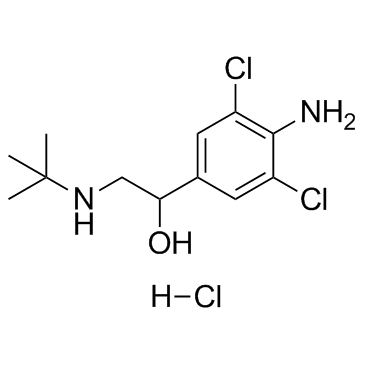Intra-amygdala injections of CREB antisense impair inhibitory avoidance memory: role of norepinephrine and acetylcholine.
Clinton E Canal, Qing Chang, Paul E Gold
文献索引:Learn. Mem. 15(9) , 677-86, (2008)
全文:HTML全文
摘要
Infusions of CREB antisense into the amygdala prior to training impair memory for aversive tasks, suggesting that the antisense may interfere with CRE-mediated gene transcription and protein synthesis important for the formation of new memories within the amygdala. However, the amygdala also appears to modulate memory formation in distributed brain sites, through mechanisms that include the release of norepinephrine and acetylcholine within the amygdala. Thus, CREB antisense injections may affect memory by interfering with mechanisms of modulation, rather than storage, of memory. In the present experiment, rats received bilateral intra-amygdala infusions of CREB antisense (2 nmol/1 microL) 6 h prior to inhibitory avoidance training. In vivo microdialysis samples were collected from the right amygdala before, during, and following training. CREB antisense produced amnesia tested at 48 h after training. In addition, CREB antisense infusions dampened the training-related release of norepinephrine, and to a lesser extent of acetylcholine, in the amygdala. Furthermore, intra-amygdala infusions of the beta-adrenergic receptor agonist clenbuterol administered immediately after training attenuated memory impairments induced by intra-amygdala injections of CREB antisense. These findings suggest that intra-amygdala treatment with CREB antisense may affect processes involved in modulation of memory in part through interference with norepinephrine and acetylcholine neurotransmission in the amygdala.
相关化合物
| 结构式 | 名称/CAS号 | 分子式 | 全部文献 |
|---|---|---|---|
 |
盐酸克仑特罗
CAS:21898-19-1 |
C12H19Cl3N2O |
|
Mutagenicity and DNA-damaging potential of clenbuterol and i...
2015-03-01 [Food Chem. Toxicol. 77 , 82-92, (2015)] |
|
Detection of clenbuterol hydrochloride residuals in pork liv...
2015-01-01 [PLoS ONE 10(3) , e0122005, (2015)] |
|
Study of interaction between agonists and asn293 in helix VI...
1999-11-01 [Mol. Pharmacol. 56 , 909, (1999)] |
|
The beta-adrenoceptor agonist clenbuterol is a potent inhibi...
1999-09-01 [Inflamm. Res. 48 , 497-502, (1999)] |
|
Neuroprotection mediated via neurotrophic factors and induct...
[Brain Res. Brain Res. Rev. 30 , 176-188, (1999)] |